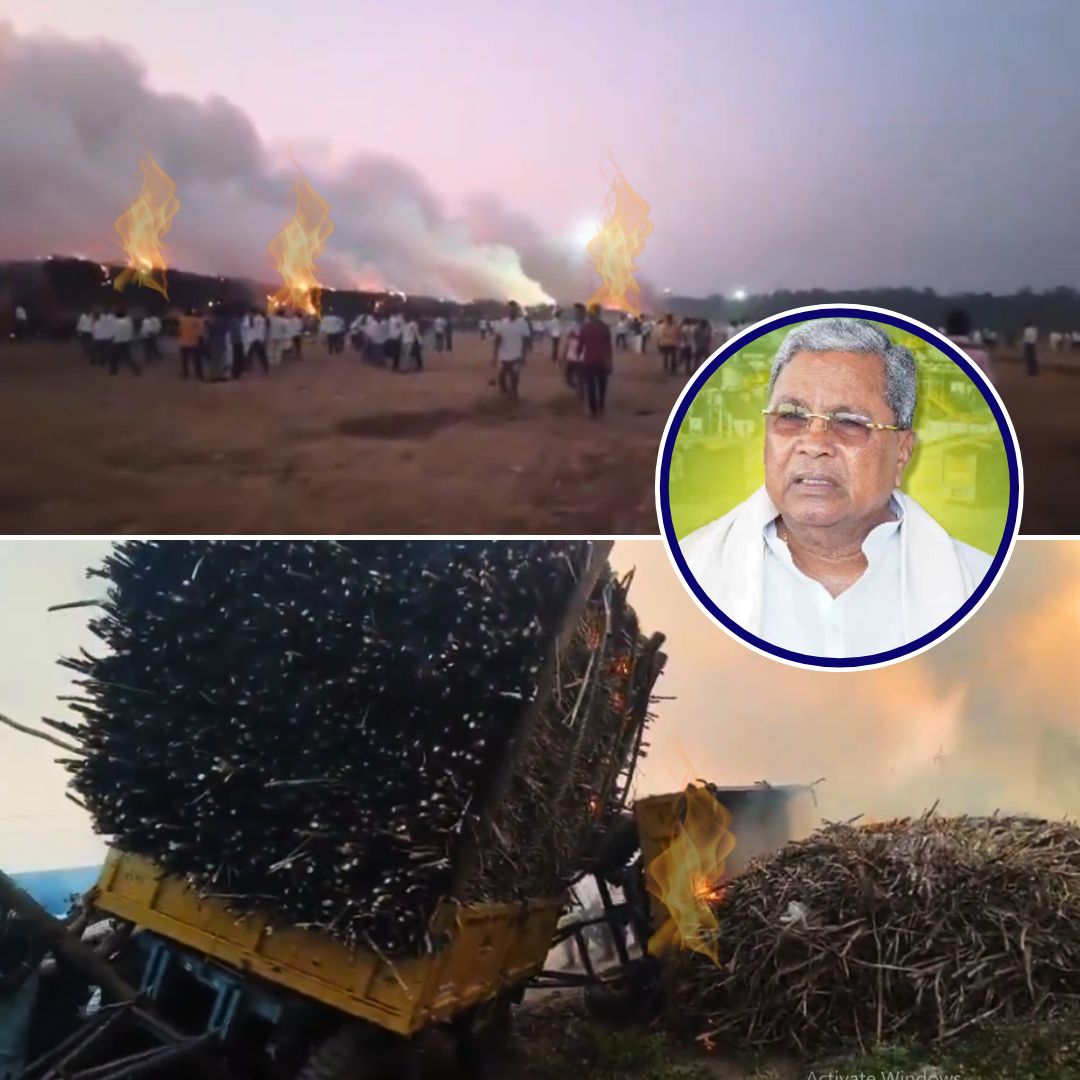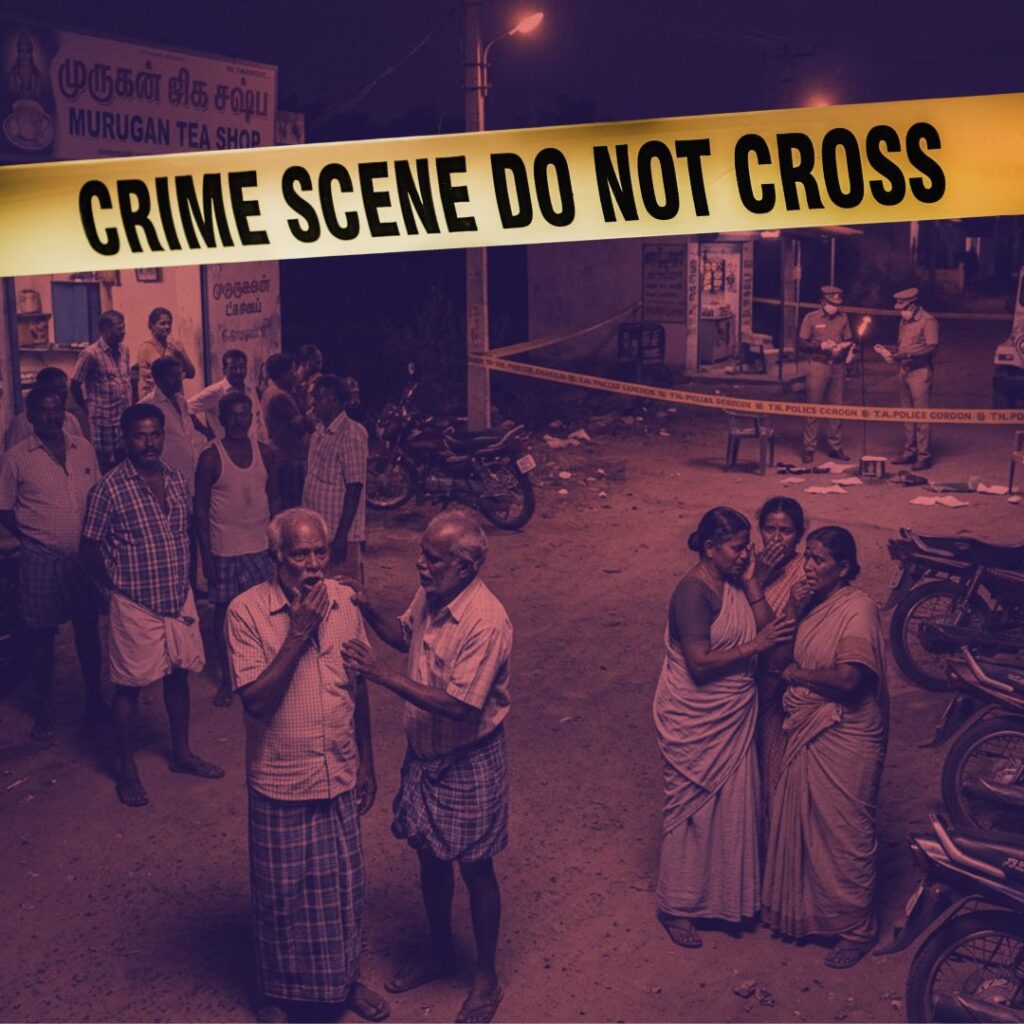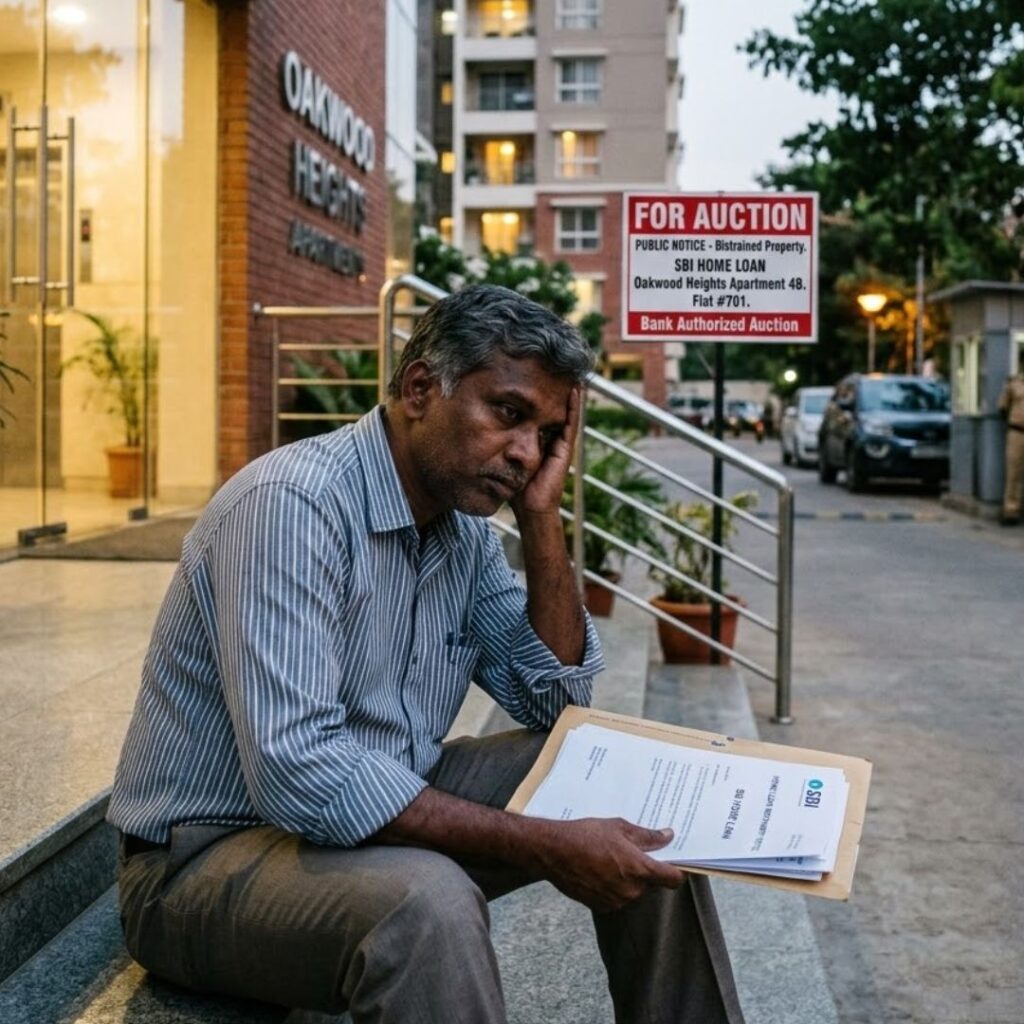In Bagalkot district of Karnataka, sugarcane farmers protesting for a price of Rs 3,500 per tonne of sugarcane turned violent, torching over 140 tractors laden with sugarcane near the Godavari sugar factory in Sameerawadi village, Mudhol taluk.
The protest intensified after factory owners failed to attend scheduled talks with farmers. The farmers are demanding immediate payment of pending dues and the reopening of the factory, rejecting the government-fixed price of Rs 3,300 per tonne.
Local administration deployed police and fire services in response. Political leaders have criticised the state government for failing to address the crisis, calling for urgent intervention to resolve the deadlock and provide compensation for losses.
Protest Escalation: Tractor Torching and Clash Among Farmers
The agitation escalated dramatically on Thursday near the Godavari sugar factory as farmers wanting a higher price clashed with others ready to supply sugarcane at the government-set rate.
Over 140 tractors parked outside the factory were torched, destroying thousands of tonnes of sugarcane and causing severe losses. Several motorcycles in proximity were also damaged in the fires. Videos of the blazing tractors circulated on social media, highlighting the magnitude of the destruction.
Local police, along with fire and emergency services, rushed to the scene to bring the flames under control. Multiple people were injured in the chaos and were admitted to the Mahalingapur government hospital. Despite the violence, farmer leader Mutthappa Komara condemned the destruction of property, stating that the protest should remain peaceful and blaming government inaction for the unrest.
Opposition leader R Ashoka urged Chief Minister Siddaramaiah to hold immediate discussions with factory owners and farmer leaders, while Union Minister H. D. Kumaraswamy criticised the government’s inconsistent response to farmers’ protests across Karnataka.
Background and Root Causes of the Crisis
The crisis originates from the Godavari sugar factory’s prolonged closure and the delay in payments to farmers for last season’s sugarcane supply. Around the same time, the Karnataka state government fixed the minimum support price at Rs 3,300 per tonne for sugarcane after consultations with farmers and factory owners.
While farmers in Belagavi and some other districts accepted this price, farmers in Bagalkot and nearby regions rejected it, demanding Rs 3,500 per tonne irrespective of sugar recovery percentages.
The ongoing disputes represent systemic challenges: many sugar factories in Karnataka operate below efficient recovery rates, creating difficulties in timely payment of dues and sustainable factory operations.
CM Siddaramaiah has blamed the Central government for the crisis and sought talks with Prime Minister Modi. The situation reflects a deeper issue involving the fair remunerative price (FRP) policies, cost of cultivation, and accountability of sugar factories-issues that have fuelled multiple protests in recent months.
Economic and Social Impact on Farmers and Community
The violent protest has left many farmers devastated, with entire crops lost in the blaze along with their tractors. The economic damage is severe, threatening the already precarious livelihoods of farmers dependent on sugarcane cultivation.
Local businesses and daily life were disrupted as Mudhol town observed a complete shutdown called by the protesters. The unrest risks further destabilising the agrarian economy and social harmony of the area.
The state government’s failure to provide timely payments or satisfactory resolution has eroded farmers’ trust and heightened frustration.
Political leaders across parties have expressed concern and called for immediate government action and compensation for losses.
The deployment of police and emergency services aims to prevent further escalation, but the underlying issues remain unresolved.
The Logical Indian’s Perspective
This unfolding crisis in Bagalkot demonstrates the volatile consequences when legitimate grievances meet unresponsiveness and mistrust.
The Logical Indian believes that while the desperation of farmers is understandable, resorting to violence and destruction only deepens community fractures and economic harm. Peaceful dialogue, transparent communication, and government accountability must be the pillars guiding resolution efforts.
Ensuring fair prices and timely payments to farmers not only safeguards livelihoods but strengthens the agricultural fabric vital to India’s food security.
All stakeholders-farmers, factory owners, and government-must come together in genuine cooperation rooted in empathy, respect, and shared commitment to justice.
ರೈತನಿಗೆ ರೈತನೇ ಶತ್ರುವಾದನಾ.?
— VENKATESH JAMBAGI (@jambagivenku) November 13, 2025
ಬಾಗಲಕೋಟ ಜಿಲ್ಲೇಯಲ್ಲಿ ಕಬ್ಬಿಗೆ ಬೆಲೆ ನಿಗದಿಗೆ ಸಕ್ಕರೆ ಕಾರ್ಖಾನೆ ಮಾಲಿಕರ ವಿರುದ್ದ ಶುರುವಾದ ರೈತರ ಪ್ರತಿಭಟನೆಯಲ್ಲಿ ರೈತರ ಟ್ರ್ಯಾಕ್ಟರ್ ಗಳಿಗೆ ಬೆಂಕಿ ಹಚ್ಚಿದ್ದು ದುರಾದೃಷ್ಠಕರ.! ಪ್ರತಿ ವರ್ಷ ರೈತ-ಸಕ್ಕರೆ ಕಾರ್ಖಾನೆ ಮಾಲಿಕರ ನಡುವೆ ನೆಡೆಯುವ ಬೆಲೆ ಸಂಘರ್ಷಕ್ಕೆ ಶಾಶ್ವತ ಪರಿಹಾರ ಕಲ್ಪಿಸಬೇಕು pic.twitter.com/GnWnZNfIoC











